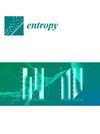量子递推傅立叶采样中的相位坐标解算。
IF 2.1
3区 物理与天体物理
Q2 PHYSICS, MULTIDISCIPLINARY
引用次数: 0
摘要
递归傅里叶采样(RFS)是最早证明量子优势的问题之一,并且已知它位于梅林-亚瑟复杂性类之外。这项工作包含了相空间术语中量子算法的新描述,展示了它在RFS中的使用,以及如何以及为什么这样做可以更好地理解RFS中的量子优势。最重要的是,用相空间术语描述量子计算的计算过程可以更好地理解为什么在求解RFS时需要不计算:只有在不计算相坐标垃圾时才有优势。这就是量子优势存在局限性的根本原因。本文章由计算机程序翻译,如有差异,请以英文原文为准。
Phase Coordinate Uncomputation in Quantum Recursive Fourier Sampling.
Recursive Fourier Sampling (RFS) was one of the earliest problems to demonstrate a quantum advantage, and is known to lie outside the Merlin-Arthur complexity class. This work contains a new description of quantum algorithms in phase space terminology, demonstrating its use in RFS, and how and why this gives a better understanding of the quantum advantage in RFS. Most importantly, describing the computational process of quantum computation in phase space terminology gives a much better understanding of why uncomputation is necessary when solving RFS: the advantage is present only when phase coordinate garbage is uncomputed. This is the underlying reason for the limitations of the quantum advantage.
求助全文
通过发布文献求助,成功后即可免费获取论文全文。
去求助
来源期刊

Entropy
PHYSICS, MULTIDISCIPLINARY-
CiteScore
4.90
自引率
11.10%
发文量
1580
审稿时长
21.05 days
期刊介绍:
Entropy (ISSN 1099-4300), an international and interdisciplinary journal of entropy and information studies, publishes reviews, regular research papers and short notes. Our aim is to encourage scientists to publish as much as possible their theoretical and experimental details. There is no restriction on the length of the papers. If there are computation and the experiment, the details must be provided so that the results can be reproduced.
 求助内容:
求助内容: 应助结果提醒方式:
应助结果提醒方式:


